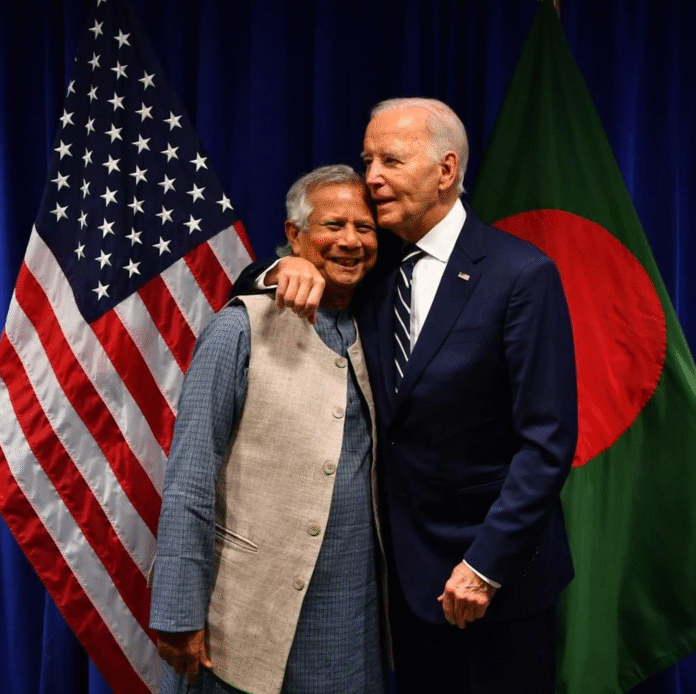In recent months, Bangladesh has faced intense national debate and outrage over actions taken by the interim government under Dr. Muhammad Yunus. Once celebrated as a global figure for his work in microfinance, Yunus is now being widely criticized within the country for policies that many view as compromising the nation’s sovereignty and national interest.
One of the most controversial decisions was the reported granting of a strategic corridor through southeastern Bangladesh to neighboring Myanmar. This decision, according to critics, threatens both the territorial integrity and geopolitical autonomy of Bangladesh. The corridor, allegedly designed to facilitate Myanmar’s access to key trade routes, has sparked outrage among security analysts and nationalist circles, who argue that it opens the door to foreign influence, surveillance, and long-term dependence. Many believe that Bangladesh’s internal security and regional power balance have been severely undermined by this move.

Opponents of the interim regime have gone as far as to accuse Dr. Yunus of “selling out” the country, prioritizing foreign interests over national welfare. There is a growing belief that under his leadership, Bangladesh is being shaped to serve the geopolitical interests of outside powers—particularly through economic, infrastructural, and diplomatic concessions that lack transparency and public consent.
Public frustration has intensified as citizens feel increasingly voiceless and vulnerable in their own country. Many protestors argue that decisions of such magnitude should involve parliamentary debate or at least public disclosure—neither of which has occurred under the Yunus-led administration. Civil society members, academics, and political activists see the move as symbolic of a broader pattern of authoritarian governance, where national resources and decisions are handled in secrecy, far removed from democratic accountability.
Furthermore, there are growing concerns about the influence of international actors in the current political setup. Speculations abound that the Yunus regime is heavily influenced by foreign lobbying groups and global financial stakeholders, with little regard for the aspirations of the Bangladeshi people. This perception has deeply eroded public trust.
Bangladesh’s sovereignty, once fiercely protected through decades of struggle, now appears precarious in the eyes of many citizens. The corridor deal with Myanmar is seen not only as a territorial concession but as a betrayal of the nation’s founding principles. In the eyes of growing numbers, Dr. Yunus’s leadership marks a dangerous shift—from democratic governance toward externally dictated policies that disregard national dignity and self-determination.


